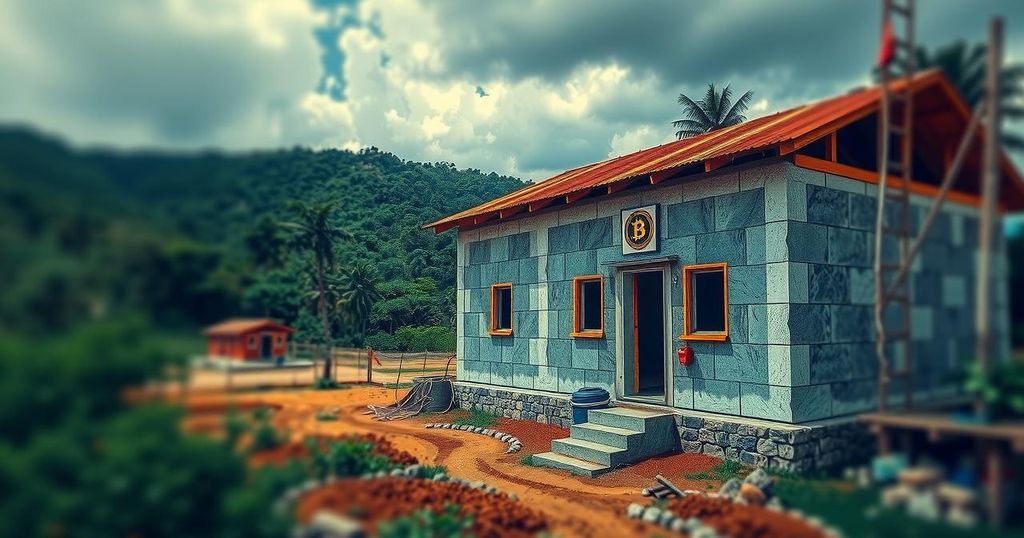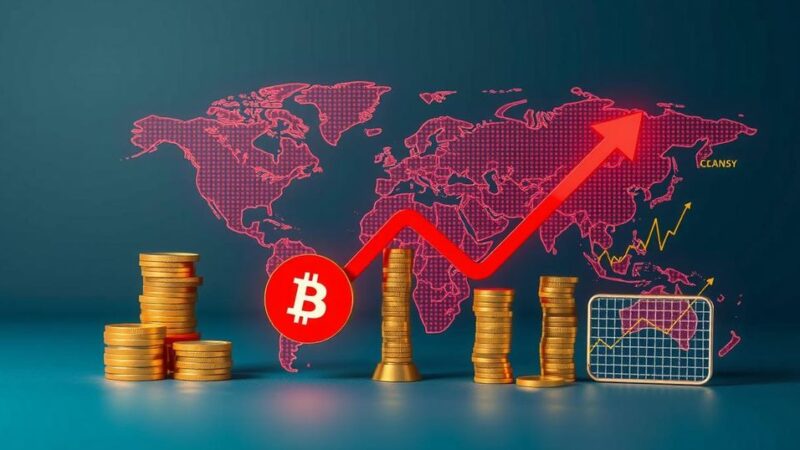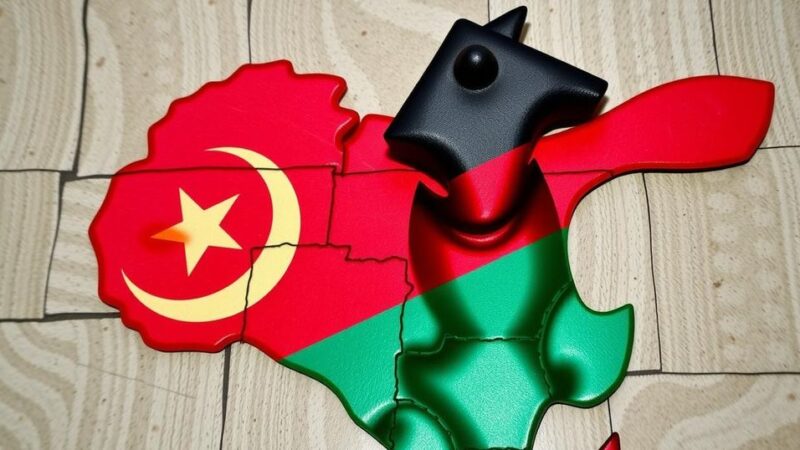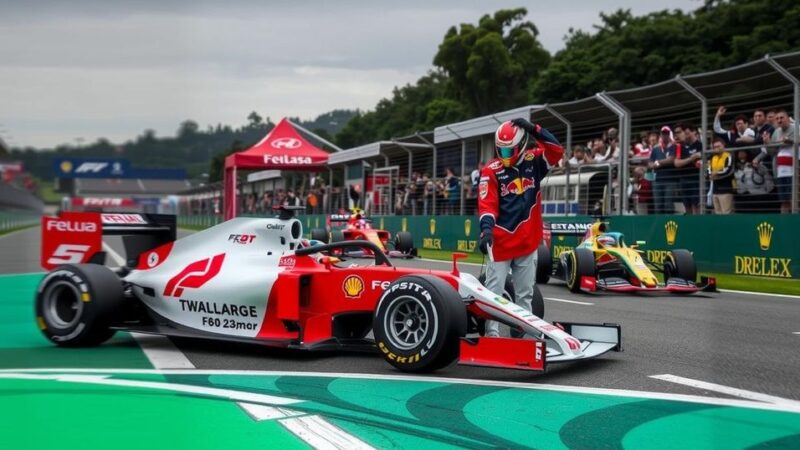El Salvador’s President Nayib Bukele donated 2 Bitcoins to support the construction of 1,000 schools in Honduras, reflecting the country’s ongoing commitment to integrating Bitcoin into its economy. Despite Bitcoin’s legal status, only 7.5% of Salvadorans utilize it for transactions. The government’s strategy includes acquiring one Bitcoin daily and aims for financial freedom by 2025, although public adoption remains low.
In a significant move supporting educational infrastructure in Honduras, President Nayib Bukele of El Salvador has recently donated two Bitcoins, valued at approximately $134,000, to fund the construction of 1,000 schools. This initiative is aligned with El Salvador’s broader commitment to integrate Bitcoin into its national financial system and enhance educational opportunities in the region. Since March 2024, the Salvadoran government has adopted a strategy of acquiring one Bitcoin daily, resulting in a current holding of about 5,913 BTC. This reflects an ongoing dedication to financial innovation through cryptocurrency. Despite Bitcoin’s legal status in the country, the adoption rate among Salvadorans remains low, with only 7.5% using it for transactional purposes. This highlights a significant gap between the government’s pro-Bitcoin policies and the general populace’s engagement with the digital currency. Moreover, President Bukele’s Bitcoin policies have attracted international interest, as evidenced by his recent interactions with Argentina’s Vice President, Victoria Villaruel, focusing on potential cooperative efforts in national Bitcoin policies. Bukele aims to achieve financial autonomy for El Salvador by 2025, aspiring to reduce the nation’s reliance on external debt through a self-financed budget. By positioning Bitcoin as a tool for economic sovereignty, he seeks to embed cryptocurrency within the societal framework. Yet, the journey toward widespread acceptance and true financial independence remains ongoing and fraught with challenges. President Bukele is steadfast in his vision for El Salvador to emerge as a leader in the cryptocurrency space. However, fostering public trust and usage of Bitcoin continues to be a primary hurdle in realizing this transformative goal.
The context of this article centers on President Nayib Bukele’s active role in promoting Bitcoin within El Salvador and its implications for regional development. Since El Salvador embraced Bitcoin as legal tender in 2021, the government has pursued various initiatives aimed at integrating cryptocurrencies into the national economy. Bukele’s administration has actively advocated for Bitcoin as a mechanism to reduce financial dependence on international institutions and enhance economic sovereignty. The recent donation to Honduras epitomizes this vision, demonstrating El Salvador’s commitment to using Bitcoin for tangible social benefits while attempting to engage with neighboring countries that share interest in digital currency. The ongoing low adoption rate among Salvadorans, however, underscores the complexities and challenges involved in this cryptocurrency revolution.
In summary, President Nayib Bukele’s donation of two Bitcoins to aid in the construction of schools in Honduras illustrates El Salvador’s ambition to leverage cryptocurrency for social development. While the initiative reflects the government’s commitment to Bitcoin as a transformative financial tool, the notably low adoption rate among the population calls attention to the need for greater public engagement with digital currency. Furthermore, Bukele’s vision of fostering economic independence through Bitcoin continues to unfold amidst growing international interest, marking a pivotal moment for El Salvador in the global cryptocurrency landscape.
Original Source: www.crypto-news-flash.com







